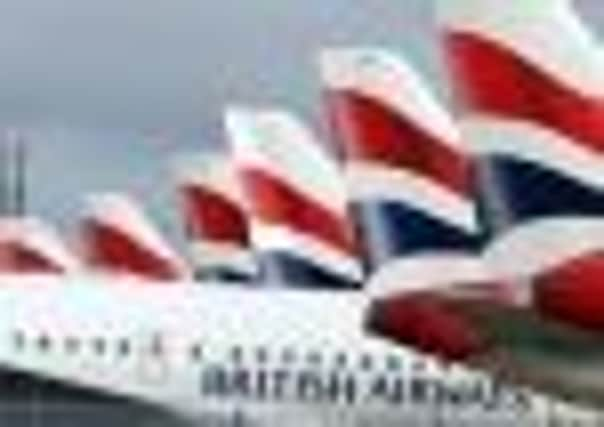Irwin Stelzer: Flightpath to recovery must take off from Heathrow


The first is that overly-indebted countries such as the US and the UK are doomed to a downward spiral if they rely on austerity alone to pay off their debts. Spending cuts reduce growth, which in turn makes it more difficult to reduce deficits, which leads to more austerity, lower growth and, well… you get the picture.
If not, think of Greece, Portugal, Spain and Italy. Sensible budget reduction must be accompanied with measures to help the economy to grow.
Advertisement
Hide AdAdvertisement
Hide AdSecond, we have learned that increasing exports can be an important contributor to overall economic growth. In the US half of the approximately two per cent annual growth rate comes from an increase in exports of farm products, machinery and all manner of goods and services.
In Britain last year, the rise in exports made the difference between the modest 0.9 per cent growth the economy recorded, and a recession. The Prime Minister is surely right in saying that he prefers to see “a trade mission … as a jobs mission”.
Third, thanks to studies commissioned by the Mayor of London, and BAA (to whom I serve as an adviser), among others, we have learned that connectivity – the ability of a nation to connect with existing and new trading partners – is a key to export growth. And to much more. It is a key to increasing tourism, to increasing foreign direct investment, to maintaining the UK’s role as a leading financial centre. And that this is crucial for Yorkshire’s businesses as well as for those elsewhere, new data from Oxford Economics leaves no doubt.
Which is why it is so worrying that Britain is increasingly unable to connect with the new markets that are emerging in Asia and Latin America.
Advertisement
Hide AdAdvertisement
Hide AdThe world is changing, and at an unprecedented rate. Wealth is shifting to India, China, Brazil and other so-called emerging market countries. “Emerging markets such as China and India are overtaking many historically important trading partners,” reports the Department for Business, Innovation & Skills headed by Vince Cable.
Meanwhile, my country, the US, is wrestling to maintain a modicum of growth, and many European markets are shrinking and in turmoil.
The absence of growth in the EU periphery countries has morphed into severe recessions, the financial system is under stress, the political classes are floundering – all proving that at least until the current crisis is solved, and there is no prospect that that happy day is just around the corner – Britain cannot look to the EU as a growing export market.
Which is where connectivity comes in. Heathrow Airport is unable to realise its full potential because of regulatory restrictions on the use of existing capacity, and the commitment of all the political parties to prevent the construction of a third runway.
Advertisement
Hide AdAdvertisement
Hide AdRegional airports are important. But their value depends in good part on the existence of a hub that can pool demand from around the country, providing sufficient traffic to support long-haul routes to important destinations.
Yes, aeroplanes are noisy. And, yes, they produce unwanted emissions. But newer planes are reducing these problems while the deteriorating economy increases the need for trade and jobs.
Joblessness and recessions also have serious social costs, in my book more serious than those that would be produced by a growth-enhancing increase in the use of Heathrow.
Some day the UK may have one of the new airports that are now being proposed. But that some day isn’t going to happen in this decade or the next, and perhaps never if the more than £50bn in required capital can’t be raised from private sources – the taxpayers are out of cash, and unable to finance such a project.
Advertisement
Hide AdAdvertisement
Hide AdAs the Oxford Economics research demonstrates, for Yorkshire’s economy to grow, a speedier solution to the connectivity crunch is required. Some £3.3bn of Yorkshire’s exports move by air. One in nine jobs in Yorkshire depend on foreign investment – and two-thirds of these companies can only reach their home market through a hub airport. Around 3,800 jobs in Yorkshire’s tourism sector alone depend directly on Heathrow Airport.
Frankfurt, Amsterdam, Madrid, and other cities are providing new airports and runways, creating easy connections for transfer passengers, free-spending tourists, and investors who want to meet face-to-face before deciding where to locate headquarters and factories. Heathrow cannot now match those facilities.
But, unleashed, Heathrow can do more to keep Britain competitive. It can create capacity to keep connecting flights between the UK regions, London and the world in operation. And it can do it before new trade routes are formed that relegate the UK to the second division among world trading countries.
If that happens, it will be considerably more painful to dig out from under the debt burden that now weighs so heavily on all of us.
Advertisement
Hide AdAdvertisement
Hide Ad* Dr Irwin Stelzer is a Senior Fellow at Hudson Institute, Washington DC, and a newspaper columnist. He is addressing Leeds, York and North Yorkshire Chamber of Commerce today on the economy and aviation policy.